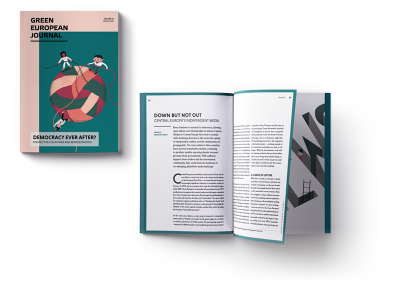This article is part of a panorama in which eight analysts from around Europe look at how referendums are used or misused, and how they shape public debate. The series explores the role of referendums throughout Europe: how they drive change, whether progressive or reactionary, and foster common understandings crucial for functioning democracies.
Over the past five years, Romania has organised two national- level referendums: a constitutional one on the definition of family in 2018 and a consultative one on anti-corruption measures in 2019. These two initiatives are the latest in a succession of eight referendums held since the fall of communism.
Although in theory a tool for direct democracy, referendums in Romania have been instrumentalised by various political actors as strategies to increase legitimacy and popularity.[1] Moreover, a more dangerous trend is that plebiscites, particularly on polarising topics, could legitimise and provide a platform for far-right, extremist voices, with deep repercussions.
The referendum on family is a telling example. The initiative sought to replace the gender-neutral language of family as founded on consensual marriage “between spouses” to an explicit mention of marriage as the union between a man and a woman. In late 2017, the Romanian government declared its intention to hold a referendum on a change to the country’s constitution after a citizens’ initiative by an anti-same-sex-marriage group, the Coalition for Family, announced that it had gathered around 3 million signatures, far beyond the 500,000 required.
A dangerous trend is that plebiscites, particularly on polarising topics, could provide a platform for far-right, extremist voices.
Supported by the then-ruling Social Democratic Party (PSD), which had gained 46 per cent in the December 2016 parliamentary elections, the referendum was expected to be a shoo-in. Romania has a high number of self-declared religious individuals, with 55 per cent of the population claiming to be highly religious. The high number of signatures gathered also seemed to indicate strong support. As a result, PSD saw the referendum as a chance to further consolidate its position. However, it failed to meet the quorum of 30 per cent, with only 21 per cent of voters participating, and was thus declared invalid.
Various reasons for this have been suggested. First, same-sex marriage was not perceived as a salient issue by many Romanians, with other, more immediate problems, such as poverty, poor infrastructure, and insufficient funds for healthcare and education considered to be of higher priority. At a cost of 40 million euros, the plebiscite was criticised by the opposition as an absurd waste of money.

The referendum was also perceived as a government attempt to deflect attention from the significant corruption-related turmoil in Romania at that time. In January 2017, the country’s largest protests since the fall of communism were sparked by an attempt to pass two bills regarding the pardoning of crimes and the amendment of the penal code.
While the government claimed that these measures would solve prison overcrowding, opposition parties and civil society viewed them as a way to let corrupt politicians go unpunished. Some voters boycotted the 2018 referendum to express their discontent.
Although the referendum failed, a worrying outcome was that it gave “far-right individuals and organisations more visibility and a platform to coalesce on”. The anti-same-sex-marriage rhetoric deployed around the referendum prepared the ground for the creation of a right-wing nationalist party, the Alliance for the Union of Romanians (AUR), in 2019.
In a shocking turn of events, AUR entered the Romanian Parliament by winning 9 per cent of the vote in the 2020 elections. Unsurprisingly, a key programme pledge is the protection of the traditional family, “made of one man and one woman”, a direct nod to the language of the campaign. Support for the party was shown to be highest in the regions where people had participated in the 2018 referendum. Its entry into parliament as the fourth largest group marks a dangerous turning point for Romania, one of the few Eastern European countries that did not have a prominent far-right party.
[1] Sergiu Gherghina (2019). “Hijacked direct democracy: the instrumental use of referendums in Romania.” East European Politics and Societies, 33(3).

